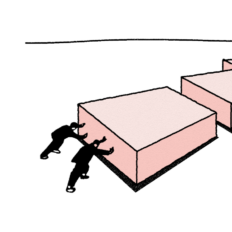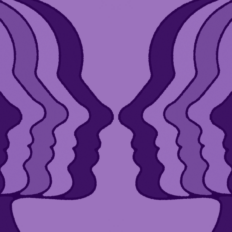The challenge
The client, a leading charity, was experiencing difficulty in enhancing inclusive culture within the organisation where Under-represented Colleagues (minority ethnic individuals and/or disabled colleagues) were able to feel their lived experiences were valued and their career barriers were understood.
The client also identified other areas that they would like to improve, such as career development and progression, and retention of minority ethnic colleagues and/or disabled colleagues.
The client believes that it is necessary to build an organisation that has a diverse representation and inclusive culture, where employees can be themselves and thrive.
Equipping Colleagues with skills, tools and confidence to progress their careers and overcome challenges as well as upskilling their Managers and Sponsors who support Colleagues on the programme were also key objectives of the programme.


I really got a lot from the 3 way coaching and having an objective persons thoughts and reflections.
The solution
As a solution, Delta designed a tailored Inclusion Ecosystem programme, named Inclusive Career Progression Programme.
Understanding the client’s requirements, the programme involved three stakeholder groups: 1) Under-represented Colleagues (minority ethnic individuals and/or disabled colleagues), 2) Line Managers and 3) Sponsors.
The programme applied an intersectional lens focussing especially on race/ethnicity and disability issues at work. In order to collect real workplace examples, the Delta team conducted desk research as well as focus groups with colleagues.
The programme consists of Workshops for each stakeholder group, Joint Workshops for some groups, Coaching Sessions including 3-way Coaching and Intro and Closing Webinars. The programme features include:
- Pre- and post-evaluations
- Short evaluation after each session
- Workshops being discussion based and action-oriented
- Pre-works provided before workshops
- Real life example shared in workshops
Impact
Equip colleagues with the knowledge, tools and confidence to enhance their careers and overcome inhibitors and challenges. Evidenced via:
- Increased confidence.
- Improved relationships between participants and managers.
- Participants learning how to champion themselves.
- Improved networking.
- Value of coaching .
Value lived experience, enabling a greater understanding of the barriers within the organisation that hinder our colleagues progressing. Evidenced via:
- Improved networking.
- Challenging biases.
- Managers feeling closer to direct reports.
- More development conversations happening.
- Sponsors opening up opportunities
Create equity of opportunity to level the playing field for progression within the organisation. Evidenced via:
- Sponsors creating opportunities
- Sponsors setting up conversations.
- Sponsors contributing barriers being removed.
Upskill people managers and sponsors (senior leaders) supporting colleagues on the programme. Evidenced via:
- Managers building better relationships.
- Managers listening better.
- Managers more mindful of being equitable.
- Managers being more mindful of biases and trust.
Sponsors were not surveyed as part of this evaluation.

Don’t take it from us, take it from our clients.

Learnt a lot about how to progress my own career, e.g. importance of managing networks and people’s perceptions of you.

My initial expectations of the programme were wrong, I thought it was entirely about making change. In reality, it’s about our own progression, and giving us the tools to progress and the knowledge to work more deliberately towards it. This actual outcome was better in many ways, but not at all what I expected.

Huge value in three way coaching.
Related resources

Article
Responding to questions raised by the UK Government’s 2021 race report
Delta's response to the 2021 race report.
Read more
Article
An inclusive executive coaching framework
It’s not our differences that divide us.
Read more
Article
How HR professionals can disrupt systemic racism at work
Addressing workplace racial bias to improve equity and inclusion.
Read more






